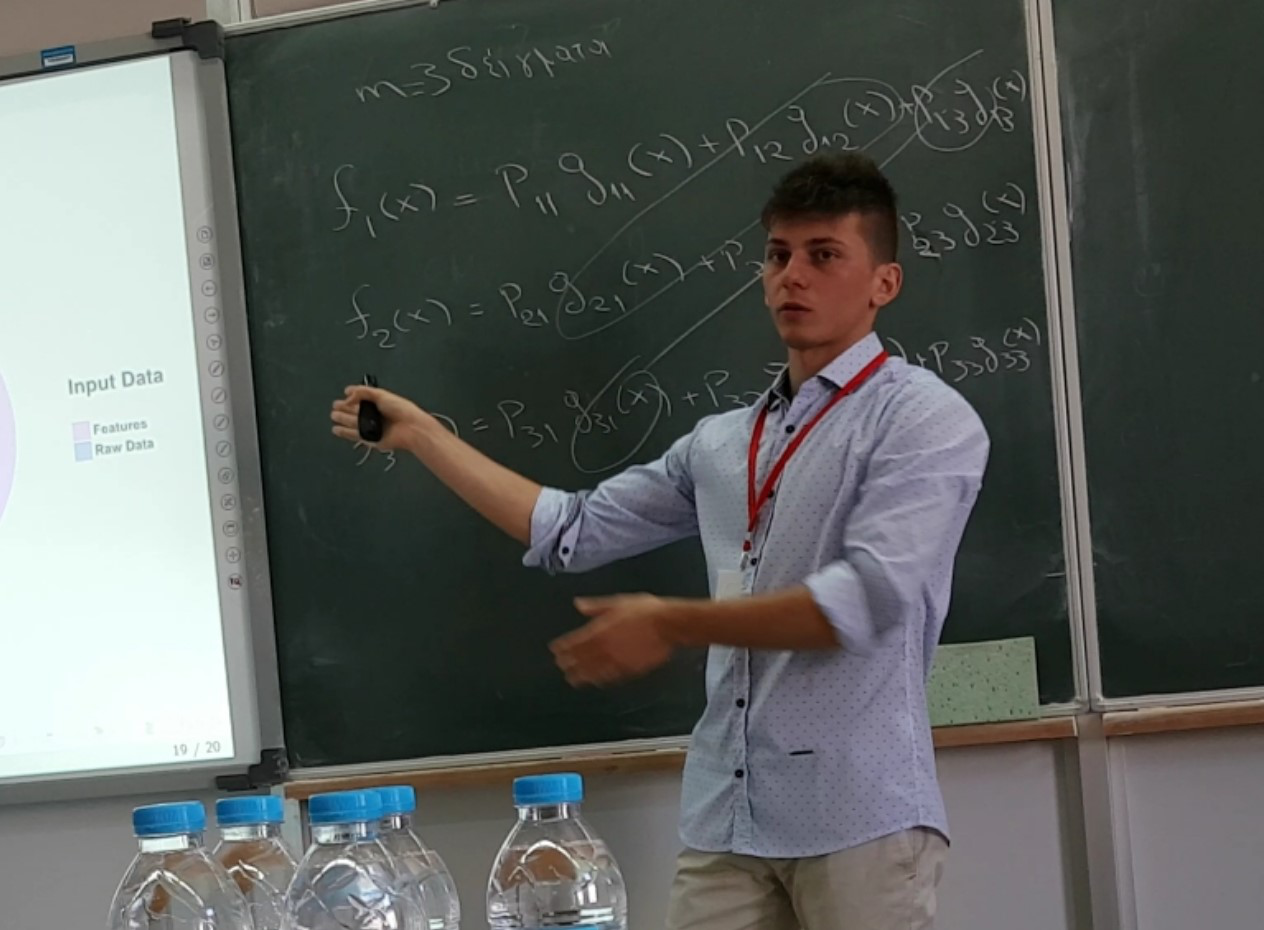
The Covid-19 crisis
The COVID-19 epidemic originated in the Chinese city of Wuhan in December 2019. Since then, it has spread all over the world, as 215 countries have reported cases, and it is likely that new cases will emerge in more countries. Given the wide spread of the pandemic, it is natural that there are distinct asymmetries in the ‘lifecycle’ of, or, differential trends in evolution of the epidemic across the globe. The severity of the situation is clearly reflected in the underlying numbers; 550,099,767 reported cases and 6,352,689 deaths globally. These numbers reveal that the COVID-19 pandemic is not comparable to the SARS (2002-2003) and the Ebola (2013-2016) epidemics, but is more related to the 1918 Global Influenza that killed roughly 40 million people worldwide and infected one third of the world population in 1918 and 1919. In a highly connected and integrated world the impact of a pandemic goes beyond just heath-related issues and mortality. Governments have been induced to take unprecedented measures, such as severe lockdowns, to control the spread of the pandemic that is practically close to a halt or shutdown in economic activity. A significant decline in consumption, production interruptions and, thus, supply chain disruptions, massive layoffs, shortages of goods are some of the repercussions that have already occurred in many economies. Moreover, global financial markets have been rattled by the wide reach of the pandemic and the subsequent necessary policy response measures, with realized and implied volatility measures recording similar, or even higher, levels seen during the Global Financial Crisis (GFC). The combined demand and supply driven shock, due to the pandemic, will most probably have an impact not seen in recent economic history, thus, large-scale expansionary fiscal and monetary policies will be required to mitigate the ‘costs’. As far as monetary policy is concerned, its ultimate effectiveness is questionable, given the deployment of unconventional monetary tools during the post GFC period. The ultimate economic effects will not be symmetric, but will largely depend on the underlying structure of each country’s economy. That is, countries with either a larger proportion of service sectors or economies that are more reliant on tourism, for instance, are expected to be impacted more by the COVID-19 crisis.
550,099,767
Cases6,352,689
Deaths18,258,383
Currently Infected Patients526,691,317
Recovered
Modeling the Economic and Financial Impact of COVID-19
One of the most prominent questions regarding the repercussions of the pandemic on the global and also on individual country economies, is the direct impact of social distancing policies on the real economy, as well as on agents’ expectations, as they are reflected in financial markets. As the pandemic affects almost every aspect of social activity, the underlying spillover effects play a critical role. Tighter lockdown and social distancing measures imply lower economic activity, as activities that require face-to-face interaction and/or some type of mobility are progressively restricted or curtailed. The expectation is that lockdown metrics should be closely related to various measures of underlying economic activity. More specifically, the main expectation is that the stricter the measures, the higher the impact on economic activity, as reflected in leading, coincident and lagging indicators. One of the primary goals of the proposed study is to effectively quantify the impact of social distancing and virus policy measures on aggregate economic activity in Greece and other advanced economies using both soft (survey based, economic sentiment indices) and hard data indicators. Given the asymmetric effects of the virus on the underlying economic sectors, it would be interesting to investigate the pandemic’s economic and financial impact. The contributions of the proposed analysis are several; first, innovative statistical and econometric techniques will be introduced to explore the economic and financial shock of the COVID-19 pandemic using an extensive set of predictor variables. Second, following the trend of new variable detection, a number of out of the box predictors will be considered in the underlying analysis. Third, part of the analysis will model the effect of COVID-19, as a latent variable. Fourth, machine learning techniques will be implemented in order to find out whether these methods improve explanatory power and predictive performance. Fifth, within the machine learning framework and penalized likelihood techniques in specific, automatic variable selection will be performed, identifying important predictors that are crucial in order to understand the evolution of economic and market risks. Last, but not least, the modeling approaches will take into account the presence of model uncertainty and implement innovative model selection techniques to end up with the set of predictors that are the most critical.
Team Members
Ioannis D. Vrontos
Associate Professor of Statistics, Athens University of Economics and Business
Ioannis D. Vrontos is Associate Professor at the Department of Statistics, Athens University of Economics and Business. He has studied at the Athens University of Economics and Business, from where he obtained his B.Sc. in Statistics (1995), his M.Sc. in Statistics (1997) and his Ph.D. is Statistics (2001). He has published papers in International Journals including the Journal of Empirical Finance, Econometric Reviews, Computational Economics, Journal of Computational and Graphical Statistics, Journal of Business and Economic Statistics, Applied Stochastic Models In Business and Industry, Journal of Forecasting, Econometric Journal, Journal of Banking and Finance, Computational Statistics and Data Analysis, and he has presented scientific papers in many international conferences. His research interests include MCMC and Convergence Diagnostics, Bayesian Inference and Bayesian Model Choice, Modelling of Time Series, Financial Econometrics, Hidden Markov Models, Optimal Asset Portfolio Allocation with Classical and Bayesian approaches, and Hedge Funds. He is a member of the International Society for Bayesian Analysis, of the Institute of Mathematical Statistics, of the Society of Computational Economics and of the Greek Statistical Institute.
Ekaterini Panopoulou
Professor of Finance, Essex Business School, University of Essex

Dr. Panopoulou is Professor of Finance at the Essex Business School, University of Essex. She obtained her Diploma in Mathematics from the National and Kapodistrian University of Athens (1993), her M.Sc. in Banking and Financial Management from the University of Piraeus (2001) and her Ph.D. in Banking and Financial Management with title ‘Finite-sample properties of Cointegration estimators under alternative error generating processes’ from University of Piraeus (2004). She taught at the University of Kent, where she also served as a Professor in Finance. Her research interests lie in applied econometrics, financial forecasting, financial econometrics, empirical finance, alternative investments, portfolio management and long run social discounting. She has conducted substantial research on economics and financial econometrics, including the study of predictability issues. She has published in a variety of scientific journals in Economics and Finance such as Journal of Corporate Finance, Journal of Empirical Finance, International Review of Financial Analysis, European Journal of Finance, Journal of the Operational Research Society, Computational Statistics and Data Analysis, Journal of Banking and Finance, Journal of Environmental Economics and Management, Journal of International Financial Markets, Institutions and Money, Review of International Economics, Journal of Forecasting among others. She participated in several research projects and grants, such as Knowledge Transfer Partnership KTP, 2018-2020, ESRC scholarship (SEDTC) for Ph.D. students, Impact Case Study Funding, 2017-2020, ESRC Seminar Series Grant, 2014-2016, Social Sciences Faculty research funds (University of Kent), 2015, 2014, Faculty Internationalization fund (University of Kent), 2014, Thales: Investigating Crucial Interdisciplinary Linkages In Ageing Societies (Panteion University, funded by the EU and the Greek Ministry of Education and Religious Affairs) among several others. She is a referee in a number of well-known scientific journals, such as the European Journal of Finance, Journal of Banking and Finance, Journal of International Financial markets, Journal of Empirical Finance among others. Her strong econometric and financial background will be of great assistance to the proposed research.
Spyridon D. Vrontos
Senior Lecturer, Department of Mathematical Sciences, University of Essex

Dr. Vrontos Spyridon is Senior Lecturer in Actuarial Science in Department of Mathematical Sciences, University of Essex. He serves as Director of B.Sc. and M.Sc. in Actuarial Science and as Director of Impact. He obtained his B.Sc. in Statistics from Athens University of Economics and Business (1996), his M.Sc. in Statistics from Athens University of Economics and Business (1998), and his Ph.D. in Statistics entitled ‘On Some Applications of Fractional Brownian Motion to Insurance and Finance’ from Athens University of Economics and Business (2005). He taught at University of Piraeus, where he also served as Lecturer in Actuarial Science. His research interests include data science and predictive modeling in actuarial science and finance, stochastic modelling with applications in insurance and finance, asset-liability management and performance measurement for pension funds, hedge funds and mutual funds. He has received the Charles A. Hachemeister Prize of Casualty Actuarial Society for the article ‘Design of Optimal Bonus-Malus System with a Frequency and a Severity Component on an Individual Basis in Automobile Insurance’. He has published in a variety of scientific journals in Statistics, Actuarial Science and Finance such as ASTIN Bulletin, Scandinavian Actuarial Journal, North American Actuarial Journal, Journal of Banking and Finance, Journal of Empirical Finance, European Journal of Finance, Journal of the Operational Research Society, Journal of Forecasting among others. He led and participated in several research projects and grants, such ‘Asset Liability Management in a Time Varying Volatility Environment’, funded by Society of Actuaries, The Actuarial Foundation and CKER, in a Knowledge Transfer Partnership with MSX International with the aim to develop a predictive, self-learning model for automotive warranty expenditure with reference to a broad range of drivers ranging from product quality to dealer and customer behavior, Catalyst Project (Risk Stratification Team Leader responsible for the development of machine learning platforms for social data in a county level (Essex, Suffolk) funded by HEFCE. He acts as a referee in a number of well-known scientific journals, such as the European Journal of Operation Research, Applied Mathematics and Computation, European Journal of Finance among several others. His strong theoretical and applied data science background will be very useful for the development of new advanced mathematical models and inferential procedures.
Nikolas Skourias
Economist/Financial Market Expert

Nicolas Skourias is an experienced economist and financial-investment advisor. Since 2014, he is a member of EDEKT Asset Management’s investment committee. He obtained a PhD in Economics from the University of Aix-Marseille III (1994) with distinction and a post graduate degree in Economics from the University of Aix-Marseille III (1990). He has extensive financial market and investment expertise, as for several years he has advised financial institutions, pension funds and family offices on macroeconomic forecasting, investment strategy and asset allocation. For numerous years he has been a member of investment committees in premier Greek financial, institutions. He has broad portfolio management experience, as he has managed and co-managed equity and asset allocation funds during his career. Nicolas has authored and co-authored numerous articles and studies that have appeared in both academic (European Economic Review, Revue d’ Economie Régionale et Urbaine, International Journal of Portfolio Analysis and Management, Journal of Air Transportation) and practitioner journals and has presented in several practitioner conferences. He also acts as referee in scientific journals and is a member of the editorial board of the International Journal of Portfolio Analysis and Management. His strong macroeconomic and investment-financial market background will be of great support to the proposed research project, as he can provide a more ‘realistic’ input and point of view.
John Galakis
Quantitative Investment Analyst/Financial Market Expert, Iniohos Advisory Services, Geneva, Switzerland

John Galakis is co-founder and partner of Iniohos Advisory Services, an investment consulting and research boutique focusing on institutional and private clients; providing research and investment consulting on a number of areas, such as, global asset allocation, portfolio construction, risk analysis, alpha generating models, forecasting, as well as quantitative-traditional investment strategy. He obtained an M.Sc. in International Economics and Finance from the University of Essex (1998) and an M.Sc. in International Securities, Investment and Banking from the International Capital Markets Association Center, University of Reading (1997). He has extensive financial market and investment expertise, as for several years he has advised financial institutions, pension funds and family offices on investment strategy, asset allocation, alpha generation and portfolio risk management. For numerous years he was research coordinator, senior quantitative analyst and head of the Quantitative Strategy Group at ABN AMRO Asset Management. The Quantitative Strategy Group was a focused research centre providing quantitative research and support to portfolio management groups to enable them to enhance their alpha generating capability. In addition, John was co-portfolio manager of the ABN AMRO Global Value Fund, a multi-cap developed equity market fund that was managed through the use of quantitative techniques. The underlying quantitative-econometric model was developed in-house by the managers of the Fund. He has been a member of several investment committees for both institutional and private client mandates. He has led and participated in numerous research projects for the structuring of innovative investment products (quantitatively driven multi manager funds, high income equity finds etc), the introduction of innovative asset weighted benchmarks versus the well established market capitalization ones, quantitatively driven Tactical Asset Allocation (TAA) models, as well as fund manager selection models. John has authored and co-authored numerous articles that have appeared in both academic and practitioner journals and has presented in several practitioner conferences. He has also acted as referee in scientific journals. His strong quantitative and investment-financial market background will be of great support to the proposed research project, as he can provide a more ‘realistic’ input and point of view.
Marios Angelis
Software Developer

Marios Angelis holds a Diploma degree in Electrical and Computer Engineering (5-year degree, 300 ECTS) from the University of Thessaly. His main interests focus on distributed systems, IoT, operating systems, data management systems, and networks. He is skilled in C, Python, Java, C++ and Matlab. His solid software background will be of great assistance to the proposed research.
Anastasios Apsemidis
PhD student in Statistics, Department of Statistics, Athens University of Economics and Business

Anastasios Apsemidis is a PhD student at the Department of Statistics, Athens University of Economics and Business. He holds a degree in Mathematics from the University of Ioannina and a M.Sc. in Statistics from Athens University of Economics and Business. His research interests include Biostatistics, Bayesian inference, Process control/monitoring and Machine learning among others. He has presented his research in both national and internationalconferences. He has received an award for “Excellent Teaching Performance” by the Department of Statistics, Athens University of Economics and Business and the “Best Statistics Paper Award for Young Statisticians 2022” by the Greek Statistical Institute.
Forecasting GDP growth: the economic impact of COVID-19 Pandemic
Description: The primary goal of this study is to effectively measure the impact of a severe random shock, such as the COVID-19 pandemic, on aggregate economic activity in Greece and other Euro Area economies, including Belgium, France, Germany, Italy, the Netherlands, Spain, as well as Scandinavian countries like Finland, Denmark, Norway, Sweden, and the United States. We propose the use of linear and quantile predictive regression models for the analysis of real GDP growth. We have developed a Bayesian approach for model selection, utilizing a computationally flexible Markov chain Monte Carlo stochastic search algorithm that explores the posterior distribution of linear and quantile models, identifying the relevant predictor variables. Penalized likelihood regression models, such as Ridge, Lasso, and Elastic Net, have also been implemented to address the issue of model selection. The model confidence set approach has been applied, verifying that the selected models identified by the stochastic search algorithm belong to the set of superior models. Our analysis confirms that the outbreak of the pandemic had a profound effect on the economies under study, revealing that different predictor variables can explain different quantiles of the underlying real GDP growth distribution for the analyzed countries. This suggests that the quantile modeling approach improves the ability to adequately explain real GDP series compared to the standard conditional mean approach, which explains only the average relationship between real GDP growth and several predictor variables.
Modeling the Economic Impact of COVID-19 Pandemic Using Dynamic Panel Models and Seemingly Unrelated Regressions
Description: Dynamic Panel models and Seemingly Unrelated Regressions are implemented to model the economic impact of the COVID-19 pandemic on aggregate economic activity in Greece and five other Euro area countries: Belgium, France, Germany, Italy, and Spain. More specifically, this study introduces dynamic panel data models to explore the ability of several common and country-specific factors to capture the aggregate shock. This modeling approach allows for heterogeneity in the panel model parameters across different sectional units, i.e., countries, and for cross-sectional dependence in the error processes. This framework provides a way to understand how the relationship between economic activity and common and specific explanatory covariates changes across different cross-sectional units. A Bayesian approach to inference regarding the estimation of the panel model parameters, as well as a classical approach based on Ordinary Least Squares (OLS) and feasible Generalized Least Squares (GLS) estimates by transforming the panel data models into the corresponding Seemingly Unrelated Regression (SUR) representation, is implemented. The findings of the analysis reveal that the exogenous shock caused by the pandemic has a significant negative effect on the real GDP growth of all the countries under study. The factors that proxy the state and spread of the pandemic appeared to be statistically significant in all estimated models.
Modeling Greek stock market during COVID-19 pandemic
Description: Financial markets play a crucial role in the global economy, as they facilitate the smooth operation of economies by allocating resources and creating liquidity for businesses and entrepreneurs. However, global financial markets are vulnerable to various random events and shocks, such as the COVID-19 pandemic. The aim of this study is to model the Greek financial market index and identify the relevant factors that impact and explain the monthly returns of the Greek financial index during the COVID-19 pandemic. We propose using a class of linear and non-linear regression models, such as break-point regression models, which allow for the presence of structural breaks in stock market return series. We employ a Bayesian approach to inference for model selection of the relevant explanatory variables and for detecting possible structural breaks that occur at unknown times. Additionally, we consider a COVID-19 transmission modeling approach to estimate the reproduction rate (R) across time during the pandemic and augment the set of explanatory variables with the estimated rate. Our analysis reveals that both the European stock market index and the outbreak of the pandemic, as measured by the reproduction rate, had a profound effect on market returns.
Modeling and Predicting U.S. Construction Materials in the COVID era using Econometric Models and Machine Learning Techniques
Description: Estimating the cost of construction materials is one of the key concerns throughout the project management life cycle in the engineering and construction industry. Fluctuations in the prices and costs of construction materials have a significant impact on estimating the project's value. The primary goal of this study is to effectively model and predict construction materials, specifically their imported quantity over time, and identify important predictor variables that affect changes in imported quantity percentages. Of particular interest is investigating the impact of the COVID-19 pandemic on the analyzed series. We have implemented several econometric models and machine learning techniques to explore the predictive ability of numerous construction and financial variables. The proposed modeling approach aims to (i) predict the percentage changes in the imported quantity of the financial series using standard predictive multiple regression-type models and various machine learning techniques, including penalized likelihood regression models (Ridge, Lasso, Elastic Net), regression trees, and Random Forests, and (ii) investigate the directional predictability of the percentage changes (upward or downward moves) using Logit regression-type models and penalized likelihood binary Logit regression models, as well as classification-based machine learning techniques. The predictive performance of these modeling approaches is evaluated using a wide range of statistical evaluation metrics. Our empirical analysis reveals evidence of predictability in U.S. construction imported quantities based on several machine learning techniques, and several construction and financial predictors have a significant impact on the imported quantity.


